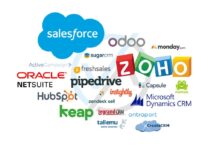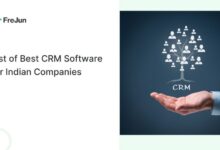Plant Based CRM: 7 Revolutionary Benefits You Can’t Ignore
Imagine a customer relationship management system that’s not only smart and efficient but also kind to the planet. Welcome to the world of plant based CRM—where sustainability meets cutting-edge technology in the most unexpected way.
What Is a Plant Based CRM?

The term ‘plant based CRM’ might sound like a mix of wellness trends and tech jargon, but it represents a growing movement in the digital ecosystem. It refers to CRM (Customer Relationship Management) platforms and practices that prioritize environmental sustainability, ethical sourcing, and carbon-neutral operations—inspired by the values of the plant-based lifestyle.
Defining the Concept
Unlike traditional CRM systems that focus solely on sales, marketing, and customer service automation, a plant based CRM integrates ecological responsibility into its core operations. This means using green data centers, minimizing e-waste, and supporting sustainable business models. It’s not about literal plants in software—but about aligning technology with planetary health.
- Emphasis on low-carbon digital infrastructure
- Use of renewable energy-powered servers
- Support for eco-conscious business workflows
The idea stems from the broader shift toward corporate sustainability, where companies are re-evaluating every aspect of their operations—from supply chains to software choices.
Origins and Evolution
The concept emerged as a metaphorical extension of the plant-based movement, which advocates for diets and lifestyles free from animal exploitation and environmentally damaging practices. As consumers began demanding greener alternatives in food, fashion, and finance, the tech world took note.
According to a GreenBiz report, over 60% of tech firms now have formal sustainability goals, including reducing digital carbon footprints. This cultural shift paved the way for innovations like plant based CRM—where customer engagement tools are designed with both people and the planet in mind.
“Sustainability isn’t just a department—it’s becoming the operating system of modern business.” — Andrew Winston, environmental strategist
Why Sustainability Matters in CRM Technology
At first glance, CRM software might seem harmless—a few clicks, some data entries, and automated emails. But behind the scenes, digital operations consume massive amounts of energy. Data centers powering cloud-based CRMs account for nearly 1% of global electricity use, according to the International Energy Agency.
The Hidden Environmental Cost of Digital Tools
Every email sent, file stored, or server request made through a CRM contributes to carbon emissions. For example, a single data query might seem trivial, but when multiplied across thousands of users daily, the energy demand becomes significant. Traditional CRMs often run on fossil fuel-powered servers, contributing to greenhouse gas emissions.
Moreover, the lifecycle of hardware used in CRM infrastructure—servers, routers, storage devices—generates electronic waste. Much of this ends up in landfills, leaching toxic materials into the environment. A plant based CRM seeks to minimize these impacts by adopting circular economy principles and clean energy solutions.
Aligning Business Values with Customer Expectations
Modern consumers, especially Millennials and Gen Z, expect brands to act responsibly. A 2023 McKinsey study found that 66% of global consumers are willing to pay more for sustainable products and services. This extends beyond physical goods to digital experiences.
When a company uses a plant based CRM, it signals a commitment to ethical operations. Customers feel more connected to brands that reflect their values—transparency, fairness, and environmental stewardship. This alignment strengthens trust and loyalty, which are central goals of any CRM strategy.
Top Features of a Plant Based CRM Platform
So what makes a CRM truly ‘plant based’? It’s not just about marketing claims—it’s about measurable, built-in features that support sustainability and social responsibility.
Carbon-Neutral Hosting and Green Servers
One of the defining traits of a plant based CRM is its reliance on green hosting. Providers like Google Cloud and AWS now offer regions powered entirely by renewable energy. Platforms that integrate with these services can claim carbon neutrality.
For instance, Salesforce has committed to net-zero emissions by 2050 and uses 100% renewable energy across its data centers. By choosing such platforms, businesses indirectly adopt a plant based CRM model—even if the term isn’t officially used.
- Use of solar, wind, or hydro-powered data centers
- Real-time carbon footprint tracking for user activity
- Automatic optimization of server loads to reduce energy waste
Eco-Friendly User Interface Design
Believe it or not, the design of a CRM interface can impact energy consumption. Dark mode interfaces, for example, reduce power usage on OLED screens by up to 60%, according to research from the University of Michigan.
Plant based CRM platforms often incorporate minimalist, low-energy UI designs. They avoid unnecessary animations, auto-playing videos, or heavy graphics that drain device batteries and increase data transmission. This not only saves energy but also improves accessibility and performance on older devices.
“Green UX is the next frontier in sustainable tech design.” — Sarah Gold, founder of Provenance
Integration with Sustainable Business Practices
A true plant based CRM doesn’t operate in isolation. It connects with other eco-conscious tools—like carbon accounting software, sustainable supply chain trackers, and ESG (Environmental, Social, and Governance) reporting modules.
For example, a CRM used by a vegan skincare brand might integrate with a blockchain-based ingredient tracker to verify that all raw materials are ethically sourced and deforestation-free. This level of transparency enhances customer trust and supports compliance with green certifications.
How Plant Based CRM Supports Ethical Marketing
Marketing is a core function of any CRM, but traditional tactics often rely on aggressive data collection, spammy outreach, and manipulative messaging. A plant based CRM redefines marketing as a relationship-building practice rooted in honesty and respect.
Permission-Based Engagement
Instead of bombarding leads with unsolicited emails, plant based CRM systems emphasize opt-in communication. They use clear consent mechanisms and honor user preferences rigorously. This reduces digital clutter and respects individual autonomy—key principles in ethical marketing.
For example, instead of purchasing third-party email lists, these platforms encourage organic list growth through value-driven content, such as educational webinars or eco-tips newsletters. This approach not only improves deliverability but also builds stronger, more engaged audiences.
Transparency in Data Usage
Consumers are increasingly wary of how their data is used. A plant based CRM addresses this by providing full transparency about data collection, storage, and sharing practices.
Users can see exactly what information is stored, who has access, and how long it’s retained. Some platforms even allow customers to download or delete their data with one click—aligning with GDPR and CCPA standards. This level of openness fosters trust and reduces the risk of data misuse.
- Clear privacy dashboards for customers
- Automated data deletion after inactivity
- No hidden tracking or behavioral profiling
Content That Educates, Not Exploits
Rather than using fear-based or scarcity-driven messaging (‘Only 3 left!’), plant based CRM platforms promote educational content that empowers customers. Think blog posts about sustainable living, carbon footprint calculators, or guides to ethical consumption.
This content-first approach positions the brand as a helpful advisor rather than a pushy salesperson. It nurtures long-term relationships and aligns with the values of environmentally conscious consumers.
Leading CRM Platforms Embracing Plant Based Principles
While no major CRM vendor uses the exact term ‘plant based CRM,’ several are incorporating its core principles into their offerings. These platforms are setting the standard for sustainable tech in customer relationship management.
Salesforce: Pioneering Sustainability in Cloud CRM
Salesforce is arguably the leader in sustainable CRM innovation. The company has achieved 100% renewable energy usage across its global operations and is a founding member of the Climate Pledge, committing to reach net-zero carbon by 2040—ten years ahead of the Paris Agreement.
Their Sustainability Cloud product allows businesses to track, analyze, and report their environmental impact directly within the CRM. This integration enables companies to align customer engagement with ESG goals, making Salesforce a de facto plant based CRM solution for forward-thinking organizations.
Learn more at Salesforce Sustainability Cloud.
HubSpot: Green Marketing and Ethical Automation
HubSpot has long championed inbound marketing—a philosophy that prioritizes value over volume. This aligns closely with plant based CRM principles. The platform encourages content creation, SEO, and organic lead generation instead of aggressive outreach.
In addition, HubSpot runs on Google Cloud, which is carbon-neutral and committed to 24/7 clean energy by 2030. Their email marketing tools include built-in unsubscribe management and spam score analysis, promoting responsible communication practices.
Explore their green initiatives at HubSpot Sustainability.
ActiveCampaign: Efficiency and Low-Impact Automation
While not explicitly marketed as sustainable, ActiveCampaign’s focus on efficiency reduces digital waste. Its automation workflows minimize redundant emails and optimize send times, lowering overall energy consumption.
The platform also supports segmentation and personalization, ensuring messages are relevant and reducing the need for mass blasts. This precision marketing approach conserves resources and improves customer satisfaction—hallmarks of a plant based CRM mindset.
Implementing a Plant Based CRM Strategy in Your Business
Adopting a plant based CRM doesn’t require a complete tech overhaul. It starts with intentionality—choosing tools and practices that reflect your company’s values.
Assess Your Current CRM’s Environmental Impact
Begin by auditing your existing CRM system. Ask questions like:
- Where are your data hosted? Are they powered by renewable energy?
- How much data do you store, and how often is it cleaned?
- Are your marketing campaigns optimized for relevance and efficiency?
Tools like the Green Web Foundation Checker can help determine if your CRM provider runs on green hosting.
Choose Sustainable CRM Providers
When selecting or upgrading your CRM, prioritize vendors with strong environmental policies. Look for certifications like:
- CarbonNeutral® certification
- Membership in the Climate Group (e.g., RE100)
- Transparent sustainability reports
Consider migrating to platforms like Salesforce, HubSpot, or Zoho (which has committed to carbon neutrality) to align with plant based CRM values.
Train Teams on Ethical Digital Practices
Technology is only as sustainable as the people using it. Educate your sales, marketing, and customer service teams on best practices such as:
- Minimizing unnecessary email sends
- Using dark mode interfaces to save energy
- Archiving outdated customer records to reduce data bloat
Encourage a culture of digital minimalism—where every action is intentional and resource-efficient.
The Future of Plant Based CRM: Trends to Watch
The concept of plant based CRM is still evolving, but several trends suggest it will become mainstream in the coming decade.
Rise of Carbon-Aware Software
Future CRM systems may include ‘carbon-aware computing’—where tasks are scheduled during times of low grid carbon intensity. For example, batch email sends could be delayed until solar power is abundant during midday.
Research from Microsoft and the University of Washington shows that such optimizations can reduce carbon emissions by up to 30% without affecting performance.
Blockchain for Transparency and Traceability
Blockchain integration could allow CRM platforms to verify the sustainability claims of every customer interaction. Imagine a CRM that logs not just when a sale occurred, but whether the product was made with fair labor and low emissions.
This level of traceability would be especially valuable for plant-based brands, organic farms, and eco-fashion labels seeking to prove their authenticity.
AI-Powered Sustainability Insights
Artificial intelligence will play a key role in the next generation of plant based CRM. AI can analyze customer behavior to recommend greener product alternatives, predict churn to reduce wasted outreach, and optimize supply chains for lower emissions.
For example, an AI module might suggest switching a customer from a high-carbon shipping option to a slower, eco-friendly alternative—based on their past preferences and values.
What is a plant based CRM?
A plant based CRM is a customer relationship management system that integrates environmental sustainability into its design and operation. It emphasizes green hosting, ethical data practices, and alignment with eco-conscious business values—inspired by the principles of the plant-based lifestyle.
Is there a CRM specifically called ‘Plant Based CRM’?
Not officially. ‘Plant based CRM’ is a conceptual term rather than a branded product. However, platforms like Salesforce, HubSpot, and others incorporate many of its principles, such as carbon-neutral operations and sustainable marketing practices.
How does a plant based CRM reduce environmental impact?
It reduces impact through renewable energy-powered servers, energy-efficient interface design, responsible data management, and integration with sustainability tools. It also promotes ethical marketing that minimizes digital waste.
Can small businesses adopt a plant based CRM approach?
Absolutely. Small businesses can start by choosing green-hosted CRM platforms, reducing email spam, cleaning up customer databases, and communicating transparently. Many sustainable CRM practices are low-cost and high-impact.
Does using a plant based CRM improve customer loyalty?
Yes. Consumers increasingly prefer brands that demonstrate environmental responsibility. Using a plant based CRM shows commitment to sustainability, which builds trust, enhances brand reputation, and fosters long-term customer relationships.
The plant based CRM movement is more than a trend—it’s a necessary evolution in how we think about technology and its role in society. By aligning customer relationship management with planetary health, businesses can create deeper connections with customers while reducing their environmental footprint. Whether through green hosting, ethical marketing, or AI-driven sustainability insights, the tools are available today. The future of CRM isn’t just smart—it’s kind, responsible, and rooted in the values of a better world.
Further Reading:






